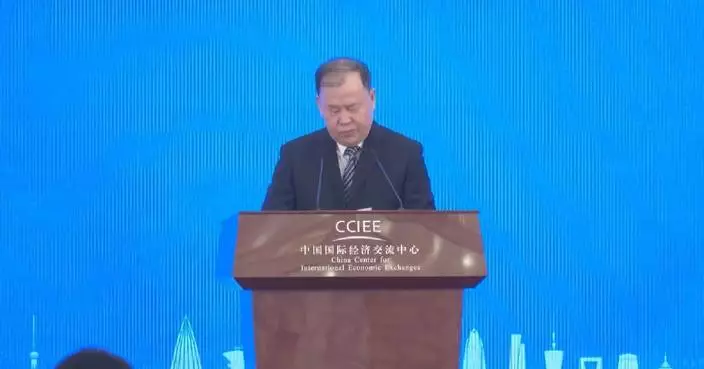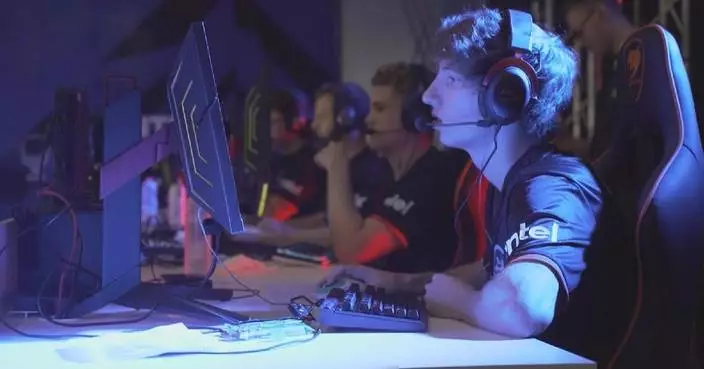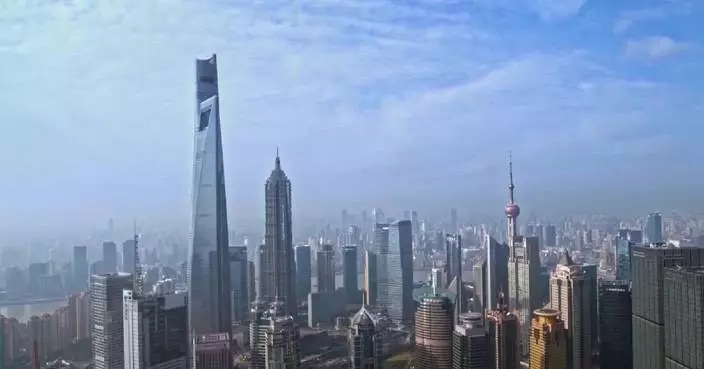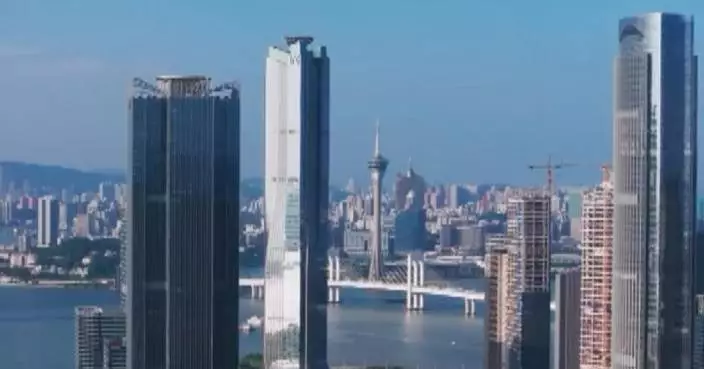An increasing influx of foreign ski enthusiasts are flocking to ski resorts in Chongli District of north China's Zhangjiakou City to embrace winter activities.
A series of International Ski and Snowboard Federation (FIS) events are taking place in Chongli and athletes from various countries and regions are practicing skillful maneuvers on the slopesmn in intense preparations for the upcoming competitions. In addition to fierce competitions on the slopes, the popularity of skiing remains high off the slopes as well. Since the ski season started in November, the influx of tourists to Chongli's ski resorts has been steadily increasing. The person in charge of the Wanlong ski resort said during the FIS events, the daily average number of tourists surpasses 5,000, with foreign visitors making up about 10 percent. "Actually, I sent some picture to my son and my family home, and they say, oh, it's fantastic, you have the restaurant here, you have the slope in front of the hotel, you're so lucky, so yeah," said Nicholas, a tourist from France. Furthermore, many ski resorts in Chongli are offering round-the-clock skiing services and nighttime winter activities. In the evening, as the outdoor temperature in the district approaches minus 20 degrees Celsius, the ski resorts are brightly illuminated, presenting dazzling light displays that provide foreign tourists with a unique and warm experience. "We go to see the Olympic (venues), and we've been around today, and it was very cool, so we wanna go skiing here as well, because it looks very nice," said Marcel, a tourist from Germany. "I've skied all over Europe and this is the best atmosphere I've seen, it's so good, the lasers, the snow, it's really good. I feel really happy to be here," said Connor, a tourist from Ireland. Since the ski season began at the ski resorts in November, Chongli has welcomed over a million visitors, indicating a nearly 20-percent increase compared to the previous year.

Foreign skiers flock to Chongli to experience winter sports charm
EU is employing double standards in its electric vehicle (EV) policies, unfairly targeting Chinese EV imports with tariffs and subsidies, according to experts at the 17th Forum on WTO Laws and China opened in Guangzhou City of south China's Guangdong Province on Saturday.
One of the highlights was the release of a blue book titled "The EU's Industrial Subsidy Policy for Lithium Batteries, PV Products and Electric Vehicles in the Name of Green Transition", which claims that while continuing to impose anti-subsidy tariffs on imported Chinese electric cars, the EU is subsidizing domestic EVs, lithium batteries and photovoltaic products.
Shi Xiaoli, the book's lead researcher, claimed that while the EU restricts state aid that might cause market distortions, numerous exemptions still exist, which ultimately allows subsidies across these three sectors.
"For example, one of the exemptions is that even if a subsidy in a certain country distorts the EU market, even significantly, if it still aligns with the EU's long-term common interests, it can remain. The scope of European common interest projects is continuously expanding, and it includes these three industries," said Shi Xiaoli, Director, WTO Law Research Center.
The book reveals that EU member states heavily subsidize electric vehicles, with substantial support covering the entire industrial chain.
At the same time, the EU has recently introduced new tariffs of up to 35 percent on imported Chinese EVs. That's in addition to the existing 10 percent duty, which some experts deemed as counterproductive.
"We believe this policy is discriminatory. The EU acknowledges that Chinese electric vehicles have caused no harm to its EV sector. The EU's trade protectionist measures are in fact more detrimental to itself. While it may protect its market in the short term, once these measures are lifted, its technology and other aspects may fall even further behind," said Sun Xiaohong, secretary-general of the China Chamber of Commerce for Import and Export of Machinery and Electronic Products (CCCME).
A lawyer at the event argued that the EU's actions are not typical trade measures, but an attempt to curb China's EV sector growth.
"Subsidies for emerging industries exist in every country, including the United States and the European Union. Also, this time the European Commission initiated the case on its own authority, marking the first use of a special legal rule in the anti-subsidy investigation against Chinese export enterprises," said Pu Lingchen, Partner, Chance Bridge Law Firm.
The EU has given itself quite the ambitious goal - starting in 2035 all new cars sold will be emissions free.
Those involved in crafting of the blue book believed that EVs will be crucial in achieving this target. But they have also said that if Chinese imported EVs come with a higher price tag, then the EU's ambitious plan will certainly face difficulties.
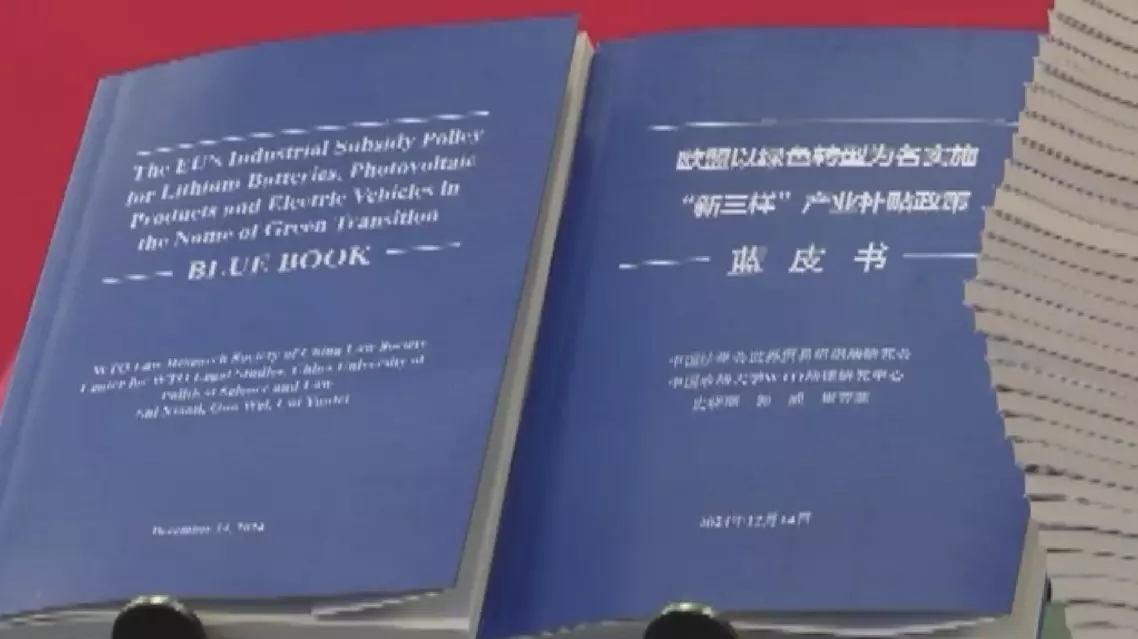
Chinese think tank criticizes EU's double standards on electric vehicles




